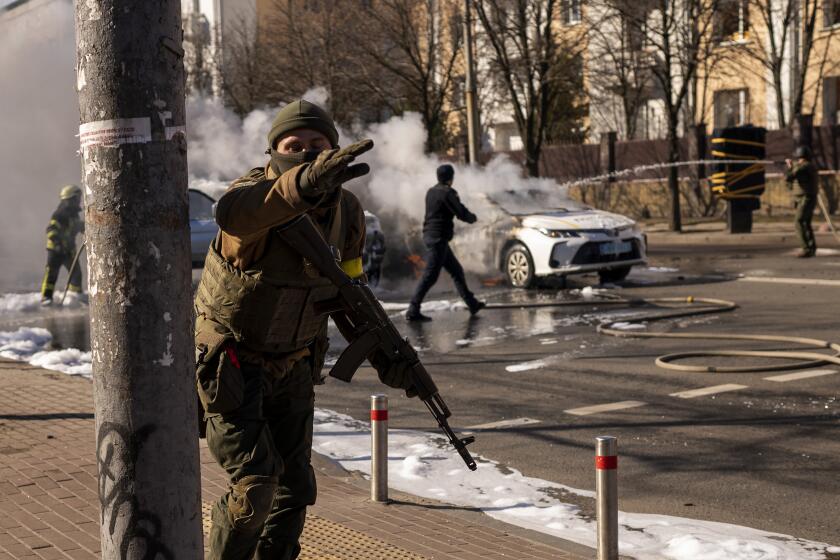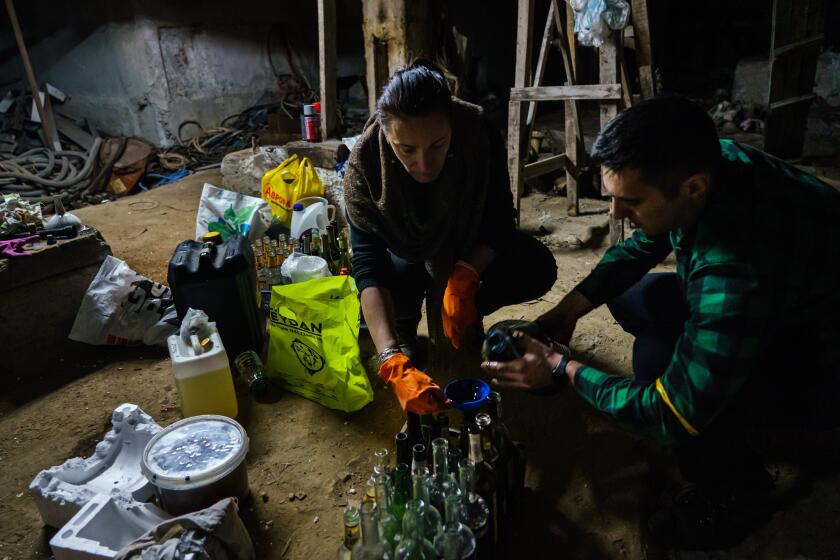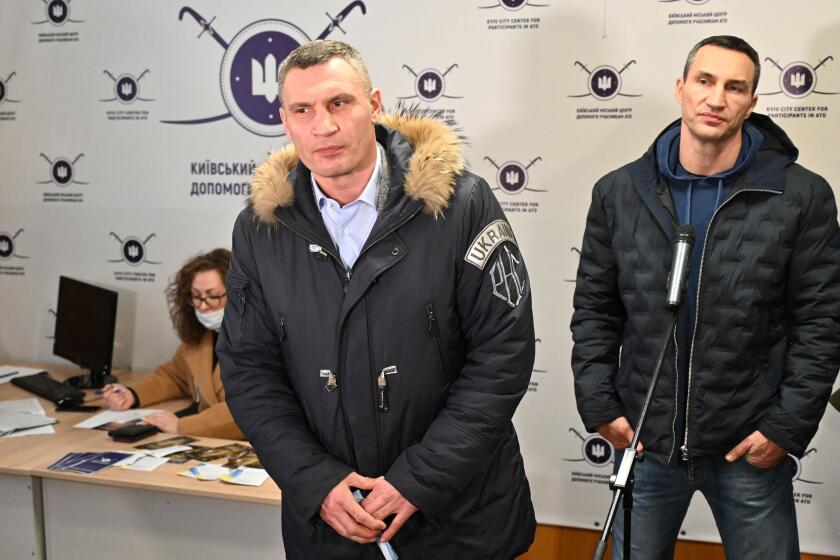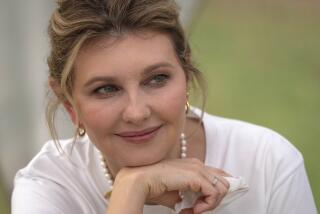CSUN doubles tennis partners from Russia and Ukraine find support from each other
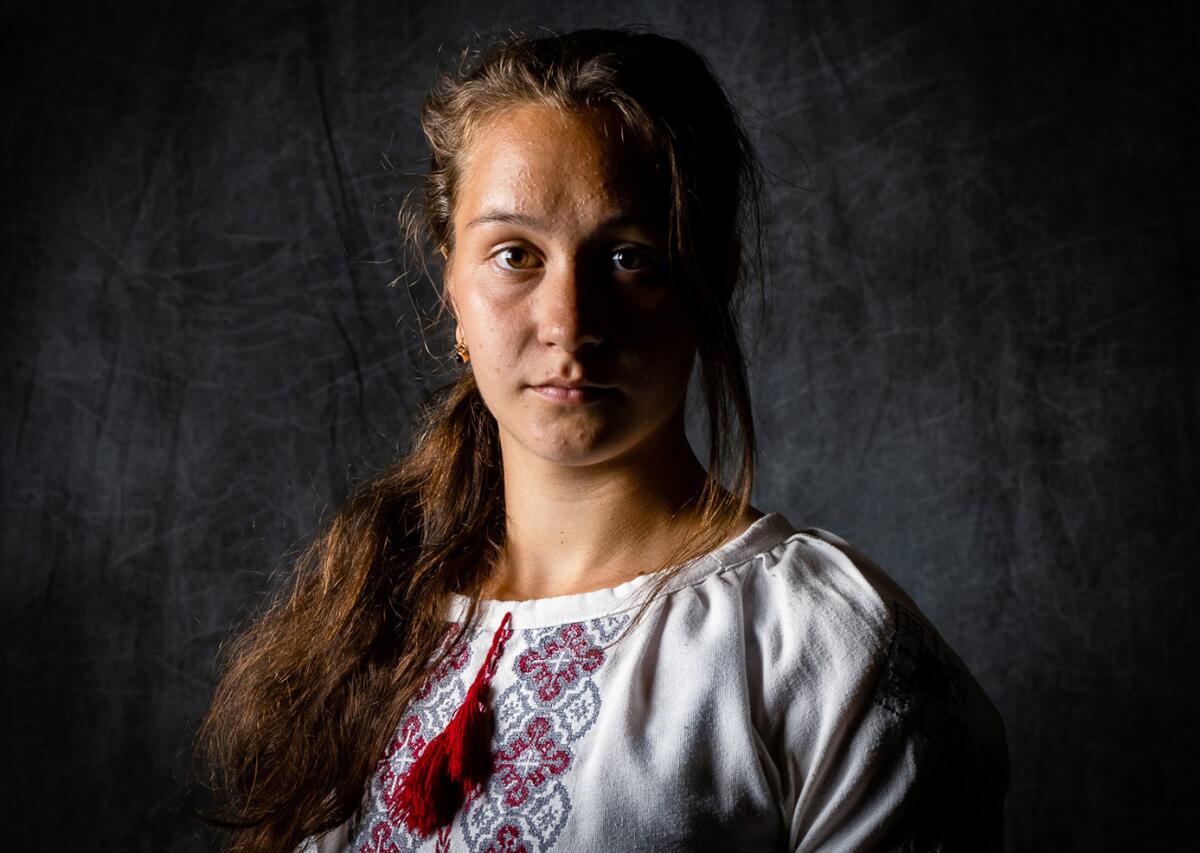
- Share via
When the first Russian bombs began falling on Kyiv last Thursday, Yuliia Zhytelna learned about it not from her parents, Volodymyr and Natalia, who were asleep in the Ukrainian capital, but from a news bulletin in the Sacramento hotel lobby where she was doing homework.
“I actually couldn’t speak,” she said. “I just started crying because I couldn’t imagine my country, my peaceful country, in a war. I’m shaking now because I remember that feeling.”
So the Cal State Northridge tennis player turned to one person she knew could dry those tears and stop that shaking. She turned to Ekaterina Repina, her roommate and doubles partner.
She turned to a Russian.
“That’s Kat,” Zhytelna said. “She was supporting me so much. I was crying on her shoulder. She was with me.”
Russian troops bear down on Kyiv and continue their thrust into Ukraine’s second-largest city, Kharkiv. Putin puts nuclear forces on alert.
It seems a strange pairing now, putting a Ukrainian and a Russian together in the same hotel room, much less on the same side of a tennis court. But until last week — or at least before Russia’s annexation of Crimea in 2014 — it seemed natural. The two countries had more in common than they did apart.
“My mom’s Russian,” Zhytelna said. “And she gave birth to five Ukrainians. I have never had problems with Russians. I have Russian friends.”
Repina is among the most recent.
“They were already super close. And now I think they’re even closer,” said Gary Victor, the Northridge tennis coach. “They’re sharing a life experience that we can only imagine. This has brought them closer and their bond is really unbreakable.”
The team has bonded as well.
“The last three days have been a flood of tears,” Victor said. “Not just among them. But among their teammates as well, who really feel sad for them and their families and the countries. And just their worlds being turned completely upside down.”
“Kat can be a big sister to Yuliia and show her the ropes of college tennis. And they get along great.”
— Gary Victor, Cal State Northridge tennis coach
Repina, who Victor said has friends and relatives in the Russian military, declined to talk for this story, fearing it could cause problems for family members at home. But she, too, is feeling the stress of the war.
Pairing the two seemed obvious before the season. Repina, who played two years at Iowa State before transferring to Northridge, is strong on the baseline and Zhytelna is an excellent serve-and-volley player. They can also speak to each other in Russian.
But Victor also saw a mentoring opportunity for Repina, 20, a redshirt senior who is more experienced than the 18-year-old Zhytelna, a freshman. So in addition to having the two play together, the coach also had them room together on the road.
They became inseparable.
“Kat can be a big sister to Yuliia and show her the ropes of college tennis,” he said. “And they get along great.”
Now they’re leaning on one another as never before.
Hours after the bombing of Kyiv began, Repina and Zhytelna stumbled through a doubles loss to Sacramento State, so they did not play in Northridge’s loss to UC Davis the next day.
In basements in Kyiv, Ukraine, civilians mix Molotov cocktails and otherwise prepare to fend off Russia’s invasion.
But they talked and cried and hugged.
“The [Russians] were trying to assault the capital and I was on the phone with my family,” Zhytelna said. “I couldn’t play. I just felt like I needed to be with them.”
Added Victor: “We’ve gone through emotional things, family things, but nothing with this kind. If they want the distraction, we’d love to have them out there. But if they can’t handle it right now, we’ve got to do what’s best for their mental health.”
Zhytelna, whose bright smile is normally as big as her serve, admits she can think of little more now than the war and her family.
“The truth is I’m not strong,” she said between tears. “I’ve been crying three days in a row.”
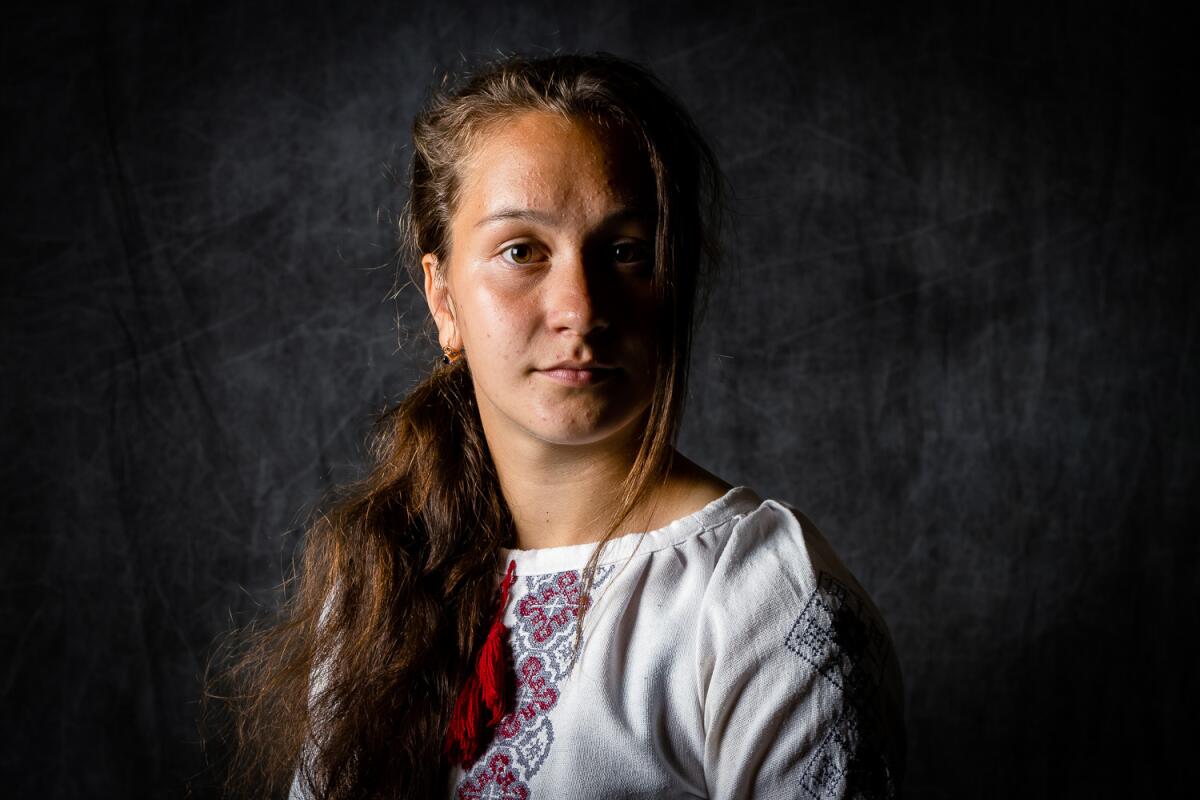
The war is less than a week old, yet it has already killed hundreds, displaced thousands and sent tens of thousands more fleeing across Ukraine’s borders as refugees. Russian President Vladimir Putin has put his nuclear force on alert as troops advance on Kyiv, where Zhytelna’s family has hunkered down, unsure what to do next.
“I just talked to them,” she said between tears late Sunday morning. “They had four sirens of air danger. And they were discussing, like, should they go to the bomb shelter? Or just stay home?
“My sister’s really mad because my parents don’t want to leave the house.”
Northridge professors have asked Zhytelna, a broadcast communications major, to deliver lectures about the situation at home; others have allowed her to postpone assignments and tests.
“I have friends in Russia. I don’t have a problem with the Russians. But I really hope that they won’t go to our country.”
— Yuliia Zhytelna
Schoolwork, tennis, sleep — all of that is a luxury for another day.
“I couldn’t sleep three days in a row. Because I was scared that I will close my eyes and I will wake up at 6 a.m. and my mom will tell me, ‘Oh, you don’t have a house anymore,’ ” she said. “It’s actually happened today with my friend. They woke up they don’t have a house.”
In the meantime, Zhytelna said she’s trying to educate others. She’s helping organize a campus vigil for later this week and is becoming an expert on military tactics, arguing that NATO and the U.S. could help Ukraine by closing the airspace over the country, denying it to Russian warplanes.
In the meantime Zhytelna, who speaks English as a third language, continues to confide and confess and cry with the teammate whose country is waging war on hers. With the teammate with whom she shares a court in competition and a hotel room on the road.
Vitali Klitschko and brother Wladimir Klitschko gained global prominence fighting in the boxing ring. Now they are taking up another fight against Russian soldiers.
“We speak in one language,” she said of Repina, “and it’s easier to express your emotion. She’s really supported me.”
Ukraine’s conflict, after all, isn’t with the Russian people. It’s with the Russian government. And that makes her relationship with Repina both an act of defiance and an example for how the two countries can come together again when the shooting stops.
“I have friends in Russia. I don’t have a problem with the Russians,” she said. “But I really hope that they won’t go to our country.”
More to Read
Go beyond the scoreboard
Get the latest on L.A.'s teams in the daily Sports Report newsletter.
You may occasionally receive promotional content from the Los Angeles Times.

